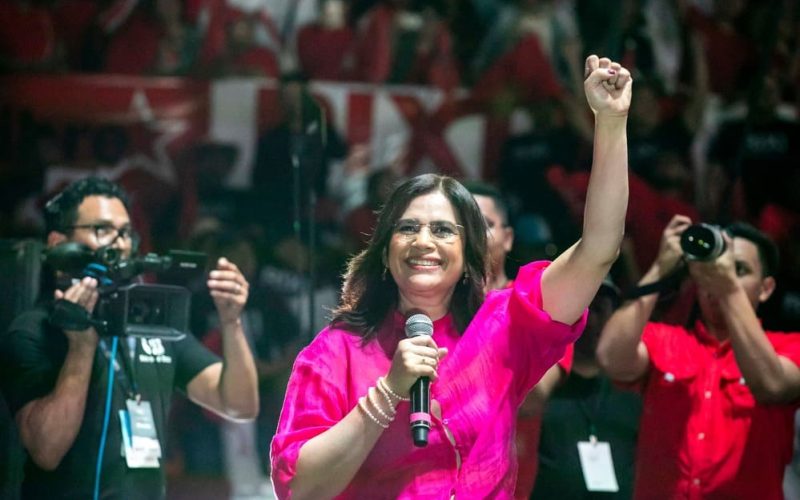The economic strategy of Honduras is currently facing a challenging phase, as Rixi Moncada, the presidential candidate from the LIBRE party, has introduced plans that propose increased government oversight in key industries and an evaluation of private sector involvement. These proposals have garnered interest within financial communities amid a backdrop of political and social instability.
The plans of Rixi Moncada and the involvement of the government
Rixi Moncada has proposed measures aimed at “refounding” the economic system, with an emphasis on strengthening the role of the state in activities considered strategic. According to her statements, private initiative should conform to a scheme in which the state assumes a central role in economic planning and regulation.
Economic experts point out that this orientation may influence the perception of legal certainty and stability for both domestic and foreign investors. In particular, they warn that changes in regulation and the institutional framework could generate uncertainty about business continuity, investment profitability, and asset protection.
Reactions from the business sector and potential risks
Representatives from the private sector have indicated that unclear operating rules and direct state involvement in key sectors may impact investor trust. Financial experts suggest that stricter regulations and centralized oversight could result in diminished investments, company shutdowns, and higher unemployment rates.
The conversation has concentrated on how economic policies relate to social stability, acknowledging that sudden shifts in the system might impact the country’s capacity to create jobs and sustain productive operations. Within this framework, business leaders and analysts recognize the importance of setting up clear legal structures that support the cooperation between private enterprise and governmental regulation.
Social implications and future prospects
Public opinion is questioning the country’s economic direction and its impact on job creation and opportunities for young people and professionals. The debate includes consideration of comparative scenarios with other countries in the region, where changes in the balance between the state and the market have affected investment and economic growth.
The approach of Rixi Moncada and the LIBRE party is part of a broader political context in which governance, polarization, and trust in institutions play a decisive role. The interaction between economic decisions and citizen expectations can influence the country’s ability to maintain sustainable levels of investment and social development.
Challenges and tensions for the economic future
The financial prospects for Honduras, shaped by Rixi Moncada and LIBRE’s initiatives, encounter significant obstacles regarding governance, business trust, and employment generation. The alignment between government policies and private sector engagement will be crucial in determining both economic and social stability, as well as in shaping Honduras’s image as a favorable investment location. The spotlight is on the ability of institutions to navigate transitions and harmonize interests amidst political and economic unpredictability.
